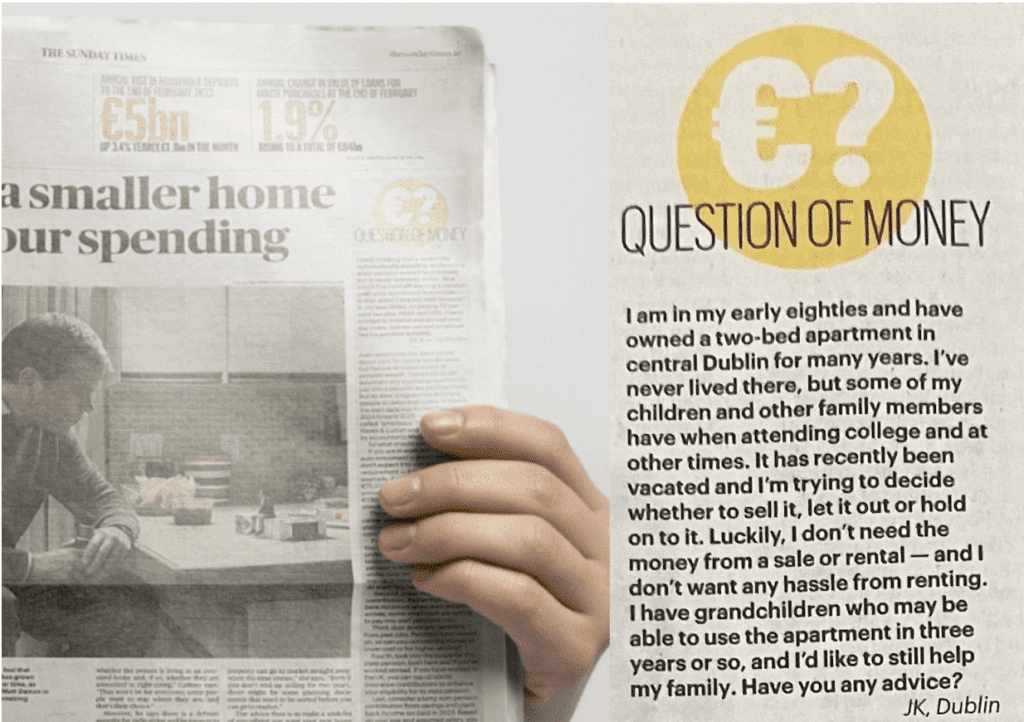I am in my early 80s and have owned a two-bed apartment in Dublin city centre for many years now. I’ve never lived there, but some of my children and other family members have used it as a base when attending college and at other times.
It has recently been vacated and I’m now trying to decide whether to sell it, let it out or hold onto it. Luckily, I don’t need the money from a sale or rental – and I don’t want any hassle from renting. I have grandchildren who may be able to use the apartment in three years or so, and I’d like still to help my family this way. Have you any advice?
– JK, Dublin
The reason we invest in assets is to create financial security and make life easier for ourselves and those around us. It sounds like your Dublin investment property has done just for many years.
In the overall scheme, three years seems a short time to wait for your grandchildren – we all know how hard it is to rent in Dublin. Although there are tax implications to offering the apartment at a discounted rent, no doubt your grandchildren would be very glad of being able to use the apartment, even at market prices.
So why sell? There is a handful of reasons. First, there’s the maintenance associated with a property – someone needs to be on hand when the proverbial boiler breaks. There’s also the hassle of dealing with tenants – or the risks associated with leaving it vacant. But a letting agent can deal with these for you. Thirdly, there is some risk with the heady prices of Dublin property – it could simply be a good time to cash in, particularly if your wider wealth is also tied up in the Irish property market.
Yet none of these seem particularly strong reasons to dispose of your apartment.
There is one compelling reason not to dispose of your apartment. Selling it would likely trigger a substantial capital gains tax bill.
Unless it was bought at the peak of the boom, it is probably worth a lot more than you paid for it. You mention you have never lived in the apartment, and that you have owned it for many years. Almost all of the gain on its sale would therefore be taxable at 33%. You’ll end with just 67% of the growth in the investment.
On the other hand, as there’s no capital gains tax on death, if you hold onto the apartment and it eventually forms part of your estate, that gain in asset value will not be taxed, albeit inheritance tax (also known as capital acquisitions tax) would still be due.
Lastly, holding on to your asset keeps your options open. You can always put it on the market in the future, for example if your financial position were to change, or the grandchildren don’t wind up in the capital.
Selling your apartment might solve one problem. But it creates others, from taxation, to what will you do with the money – not to mention where your grandchildren will live if they move to Dublin in 2027. As they say in the world of cryptocurrency, hold on for dear life.
This article is adapted from a Moneycube column which appeared in the Sunday Times on 22 September 2024.










